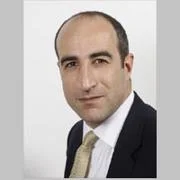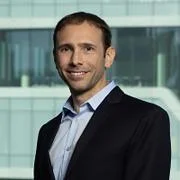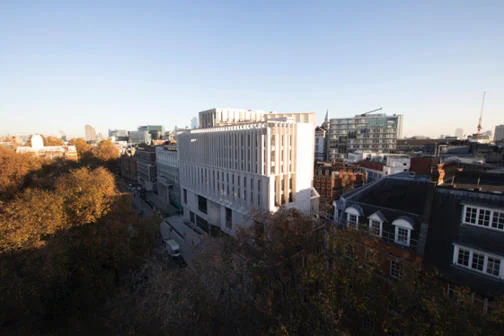Overview
Introduction
The MSc Social Innovation and Entrepreneurship aims to equip you with the knowledge and skills to understand social innovation, as well as to think about how to finance and launch successful entrepreneurial ventures with social goals.
The curriculum draws on the latest social innovation and entrepreneurship research as well as practical insights from our network of entrepreneurs and social organisations worldwide.
Studying on this programme will help you to:
- develop the skills to understand the root causes of social challenges and drive real change
- stand out with an LSE degree that blends academic rigour with real-world experience
- take your learning beyond the classroom with an international field trip, collaborating with a real-world organisation
- master key management and leadership skills, empowering you to become an outstanding leader
- finish your studies with your choice for a final project: conduct academic research through a final dissertation, or work on a personalised Capstone project where you can either design your own social enterprise or consult for a real-world organisation.
LSE is ranked sixth in the world for social sciences and management (QS World University Rankings by Subject 2025). So, you’ll be studying in a globally renowned learning environment with world-leading academics.
Read more about the LSE student experience on our student blog, The Student Lens.
Entry requirements
- Undergraduate degree with upper second-class honours (2.1) or above, or international equivalent. Applicants from any academic background are welcomed. Select your country from the dropdown list below to find out the entry requirements that apply to you.
- Students admitted to the programme normally have two or more years' relevant work experience. However, applicants with less experience (for example an internship) are also welcome to apply. Please detail any relevant experience in your application.
- A GMAT or GRE score is not required, but a strong result from either of these tests may benefit applicants.
- English language requirements
Overseas
English language requirements
The English language requirement for this programme is Standard. Read more about our English language requirements.
Competition for places at LSE is strong. So, even if you meet the minimum entry requirements, this doesn't guarantee you an offer of a place.
However, please don’t feel deterred from applying – we want to hear from all suitably qualified students. Think carefully about how you can put together the strongest possible application to help you stand out.
Programme content
Highlights
- A range of core and elective courses, covering social issues and innovations, and fundamental managerial and leadership skills.
- A year-long group project, linked to two core courses (MG4G1 and MG4G2). This involves working closely with real world organisations and includes a virtual research week in the Autumn Term plus an in-person international field trip in Winter Term.
- SIE-only events with industry professionals, including Q and A sessions, panels, fireside chats and workshops.
- Summer bootcamp of events run in conjunction with LSE Generate, which supports students to develop entrepreneurial skills at every stage of their journey.
- Your choice of a traditional research dissertation or an applied capstone project related to a social enterprise.
Programme trips
- Virtual Research Week: Autumn Term Week 6 (around early November).
- International field trip: Winter Term Week 6 (around late February). Example destinations: Nairobi (Kenya), Cape Town (South Africa) - students visit one destination depending on where the social business that they're working with are based. See the section "Fees and funding" below for costs associated with this field trip.
Programme teaching
Compulsory core courses (three units)
- Social innovation design: The first two core courses will focus on understanding and designing solutions for social challenges. These courses draw on the Department of Management's 10 years of experience in conducting research projects and field design programmes with an ecosystem of local partners around the world.
- Core management fundamentals: The subsequent two core courses will focus on the fundamentals of organisational management, with concepts, terminology and frameworks in marketing, organisational behaviour, economics, accounting and quantitative research. This is designed to build students' ability to make good judgements and better business decisions, and ask the right questions to critically assess issues in the in building, deployment and scaling of their social enterprise.
- Dissertation: Learning from all core courses will be brought together with a dissertation at the end of the programme, with the opportunity to conduct an individual capstone project bringing together a well-rounded understanding of social problems, techniques to develop innovative solutions, and entrepreneurial or managerial skills.
Students have three options for the dissertation:
- Capstone: An individual design project for a new social enterprise, producing a sound and viable business model and a compelling plan for achieving long-term sustainability.
- Capstone: An individual consulting project to solve a real-world issue for a client organisation.
- Research: Students can undertake a research dissertation, conducting an empirical research project to develop new knowledge in the field of social innovation.
Optional elective courses (one unit)
Optional elective courses of your choice (to the total value of one unit) will give you a chance to customise the programme to your own interests and career goals. The School’s expertise in the social, economic and political world will provide you with a rich variety of options to deepen and specialise your knowledge.
Social Innovation and Entrepreneurship Fundamentals
Why study with us
Discover more about our students and department.
Meet the department
Our mission
Welcome to the Department of Management. Our mission is to inspire superior management practices by fostering a comprehensive understanding of individuals, teams, organisations, and markets, along with the psychological, social, political, and technological contexts that influence them.
By studying with us, you'll gain access to a world-leading centre for education and research, uniquely positioned within a world-class social science institution at the heart of a truly global city.
The environment
Join a vibrant intellectual community comprising of world-renowned faculty, astute students, dedicated and responsive professional services staff, and high achieving alumni. Through pioneering research and high-level teaching, you'll receive comprehensive, intensive, and rigorous methodological training to help you become an expert in your specialist fields.
The rich and culturally diverse learning environment at LSE’s Department of Management, won't only enrich your experience through developing a broad perspective and understanding, but also unlock an invaluable network of global peers.
Create a better world
We go beyond the boundaries of a traditional business school by integrating diverse disciplines such as economics, marketing, data, and analytics. Our comprehensive approach ensures that students gain a profound and multifaceted understanding of the business world, equipping them with the skills and knowledge to excel in a dynamic global environment.
Join us in our vision to create a better world, where a profound understanding of management drives positive change in both business and society.
Discover more about our programmes and research.
Who's who
Professor Saul Estrin

Dr Yally Avrahampour




Why LSE
University of the Year 2025 and 1st in the UK in 2025 and 2026
Times and The Sunday Times - Good University Guide 2025 and 20261st in London for the 14th year running
The Complete University Guide - University League Tables 20266th in the world for the study of social sciences and management
QS World University Rankings by Subject 20256th in the world for leading the way in social and environmental sustainability
QS World University Rankings: Sustainability 2026Your application
Overview
Your application will be considered on its academic merits. An offer of a place may be conditional on attending additional courses and/or passing qualifying examinations at a suitable standard, in addition to your degree. There are always more applications than places available at LSE and possession of the minimum entrance requirements doen't guarantee admission offer. It's therefore in your interests to apply as early as possible.
We welcome applications from all suitably qualified prospective students. At LSE, we want to recruit students with the best academic merit, potential and motivation, irrespective of background.
We carefully consider each application and examine all the information included on your application form, such as your:
- academic achievement (including predicted and achieved grades)
- statement of academic purpose (see further information below)
- two academic references
- CV.
See further information on supporting documents.
Statement of academic purpose: specific requirements
Write a short statement (up to 600 words) about why you want to do the programme. This might cover, for example, what you'll bring to the cohort, and what your particular strengths are.
Also, you should answer the following questions (your answers should be approximately 500 words each):
- Tell us about an experience you had with social innovation/entrepreneurship/a project with high social impact. What role did you play and what did you learn about yourself?
- How will your past experience, combined with this LSE master's, help you to achieve your goals?
The total length of your statement – including the answers to the above questions – should therefore be between 1,100 and 1,600 words.
Speak to an admissions specialist
If you have any queries which are not answered on the website or would like to chat with an admissions specialist, we run one-to-one Zoom chats on a weekly basis for prospective students and offer holders:
Contact us
For questions related to your application or the admissions process, check our admissions frequently asked questions page.
If you have any queries which aren’t answered on the website, contact the Department of Management Programme and Admissions team at dom.msc.admissions@lse.ac.uk. Please note that we’re only able to assist with enquiries relating to the Department of Management.
Who attends
You’ll learn alongside a diverse, global cohort of students committed to driving positive change.
We expect to welcome students from a broad mix of academic and employment backgrounds, including those currently working in socially focused organisations or CSR and sustainability teams within large companies, as well as students from a wide variety of other backgrounds wishing to move into this field.
The programme is well-suited to graduates with two or more years' work experience in social innovation, however work experience isn't required and more recent graduates will also benefit from the development of knowledge and practical experience offered by the programme. This diverse mix of experience and expertise in the classroom is designed to challenge your perspectives and enrich your learning experience.
Read more about the LSE student experience on our student blog, The Student Lens.
When to apply
Applications for this programme are considered on a rolling basis. This means that applications will close once the programme is full.
There is no fixed deadline. However, if you’d like to be considered for any funding opportunities, you must submit your application (and all supporting documents) by the funding deadline. See the fees and funding section below for more details.
Fees and funding
The table of fees shows the latest tuition fees for all programmes.
You're charged a fee for your programme. At LSE, your tuition fee covers registration and examination fees payable to the School, lectures, classes and individual supervision, lectures given at other colleges under intercollegiate arrangements and, under current arrangements, membership of the Students' Union. It doesn't cover living costs or travel or fieldwork.
Home
Home student fee (2026/27)
For this programme, the tuition fee is different for home and overseas students depending on their fee status.
Deposit
To secure a place on the programme offer holders will be required to pay a deposit of 10% of the tuition fee within six weeks of receiving their offer.
International field trip
This programme includes an international field trip. You should expect to cover the costs of travel in the UK to and from UK airports, visa costs, and food and subsistence whilst you're on the trip. Otherwise, the flights, accommodation and internal travel at the location are covered by your student fee.
Overseas
Overseas student fee (2026/27)
For this programme, the tuition fee is different for home and overseas students depending on their fee status.
Deposit
To secure a place on the programme offer holders will be required to pay a deposit of 10% of the tuition fee within six weeks of receiving their offer.
International field trip
This programme includes an international field trip. You should expect to cover the costs of travel in the UK to and from UK airports, visa costs, and food and subsistence whilst you're on the trip. Otherwise, the flights, accommodation and internal travel at the location are covered by your student fee.
Learning and assessment
How you learn
How you're assessed
Half-unit courses can be assessed by two-hour unseen examinations, coursework assignments, class participation or group/individual project work.
You can view indicative details of hours and assessment for all courses listed in the online Programme Regulations.
Graduate destinations
Overview
Career development
This programme has been designed to provides the skills, tools and networks to launch and scale your own social enterprise, drive forward your social impact career, or transition into social innovation from another sector.
Graduate destinations
Graduates from the MSc Social Innovation and Entrepreneurship programme are often highly sought-after in the job market and many go on to successful careers in a range of leading organisations worldwide. Many of our graduates have also launched successful start-up ventures.
Top five sectors graduates have gone onto work in* include:
- education, teaching and research
- health and social care
- consultancy
- FMCG, manufacturing and retail
- financial and professional services.
Examples of organisations that graduates work in* include:
- TechnoServe
- Ace Education
- Comagine Health
- Deloitte
- Invest 2 Innovate.
* Data collected by the Higher Education Statistics Agency (HESA) and supplied to LSE as part of the 2018/19 - 2021/22 Graduate Outcomes Surveys.
Career support
Our Careers Alumni and Employer Relations (CAER) team support you in preparation for whichever path you choose to follow beyond LSE.
We work alongside you each step of the way; from researching different sectors and opportunities available, to identifying internships, jobs or further study, and then navigating the application and interview process.
You can take advantage of one-to-one careers appointments (that continue when you're a graduate), complemented by a wide range of events and engagements throughout the duration of your programme, including:
- industry-focused alumni panels
- alumni and employer networking evenings
- employer skills seminars
- business projects
- office visits
- mock assessment centres/interviews
- careers skills boot camps.
Bethan, one of our careers consultants, offers support and organises events specifically for SIE students. From social impact consulting and sustainability to working in international organisations, our events are designed to support your goals.
If you plan to launch and scale your own social enterprise, LSE Generate, the School’s award-winning home for entrepreneurship, offers an all-year-round programme to help at every stage of your journey.
All Department of Management students have access to the services of our team in addition to the support of the central LSE Careers team, who support the wider university.

